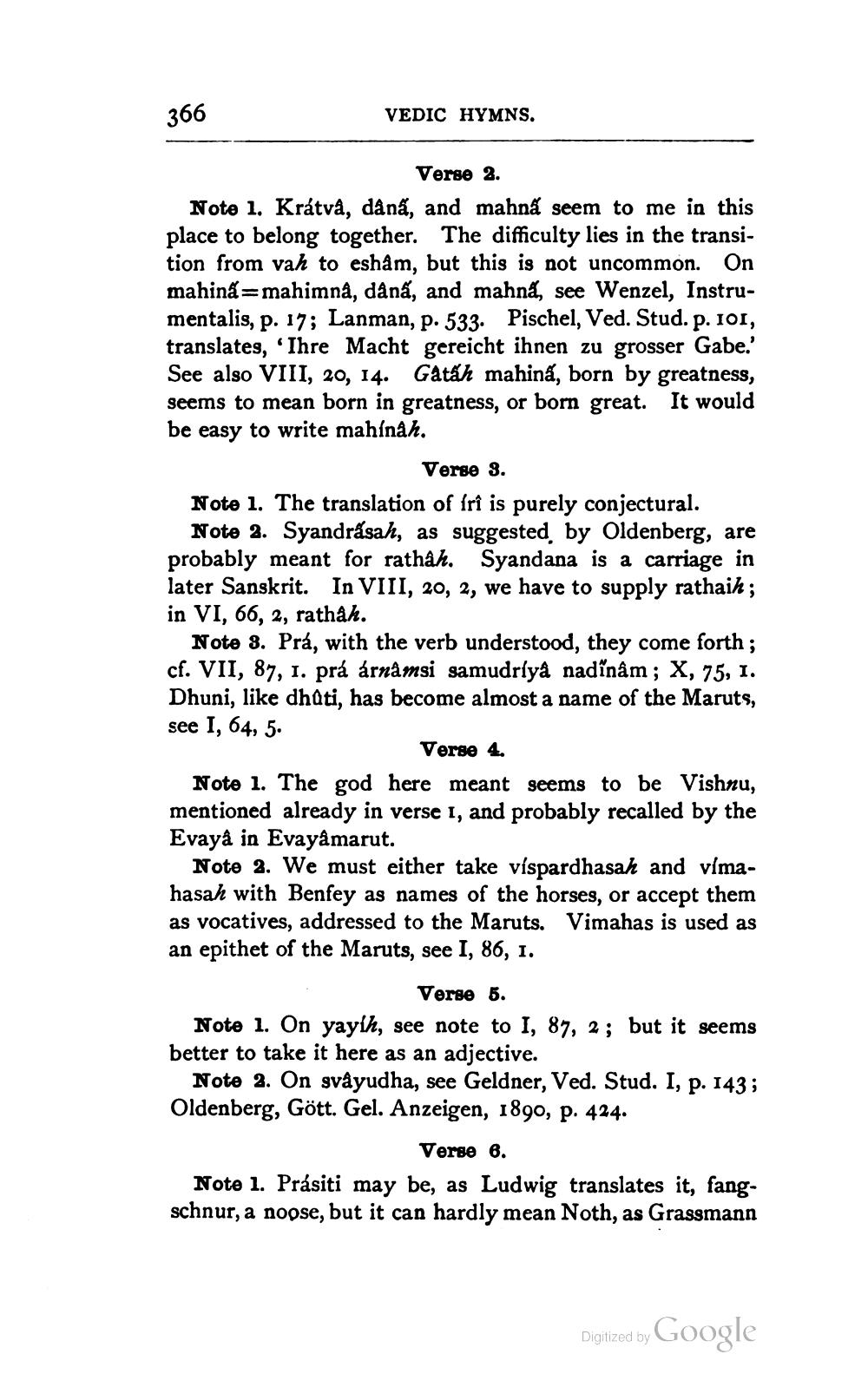________________
366
VEDIC HYMNS.
Verse 2 Note 1. Krátvá, dână, and mahnă seem to me in this place to belong together. The difficulty lies in the transition from vah to eshâm, but this is not uncommon. On mahina=mahimna, dana, and mahna, see Wenzel, Instrumentalis, p. 17; Lanman, p. 533. Pischel, Ved. Stud. p. 101, translates, 'Ihre Macht gereicht ihnen zu grosser Gabe.' See also VIII, 20, 14. Gatah mahina, born by greatness, seems to mean born in greatness, or born great. It would be easy to write mahinah.
Verse 3. Note 1. The translation of frî is purely conjectural.
Note 2. Syandrásah, as suggested by Oldenberg, are probably meant for rathah. Syandana is a carriage in later Sanskrit. In VIII, 20, 2, we have to supply rathaih; in VI, 66, 2, rathah.
Note 3. Prá, with the verb understood, they come forth; cf. VII, 87, 1. prá árnámsi samudrlyå nadînâm; X, 75, 1. Dhuni, like dhati, has become almost a name of the Maruts, see I, 64, 5.
Verse 4. Note 1. The god here meant seems to be Vishnu, mentioned already in verse 1, and probably recalled by the Evayâ in Evayâmarut.
Note 2. We must either take vispardhasah and vimahasah with Benfey as names of the horses, or accept them as vocatives, addressed to the Maruts. Vimahas is used as an epithet of the Maruts, see I, 86, 1.
Verse 5. Note 1. On yaylh, see note to I, 87, 2; but it seems better to take it here as an adjective.
Note 2. On svậyudha, see Geldner, Ved. Stud. I, p. 143; Oldenberg, Gött. Gel. Anzeigen, 1890, p. 424.
Verse 6. Note 1. Prásiti may be, as Ludwig translates it, fangschnur, a noose, but it can hardly mean Noth, as Grassmann
Digized by Google




